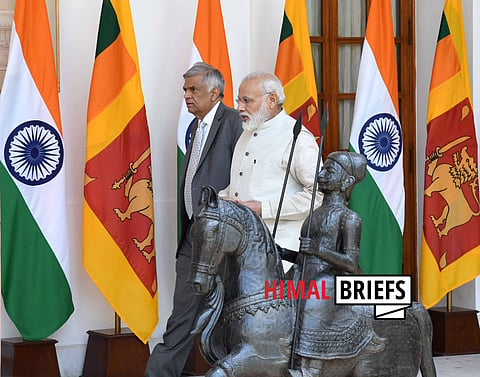Sri Lanka appears to be moving closer to its neighbour, as signified by the January visit to Colombo by S Jaishankar, India’s minister of external affairs. Photo: Xinhua / IMAGO
Politics
How the IMF bailout is changing Sri Lanka’s foreign policy
The recent IMF bailout package has significantly shifted Sri Lanka’s foreign policy with major players such as China, India and the United States, though such shifts do not seem to bode well for its people
On 20 March, the International Monetary Fund announced its approval of an Extended Fund Facility to Sri Lanka.
The facility – which amounts to USD 2.9 billion in financial support, to be disbursed in tranches over the next four years –- marks the 17th occasion the island nation has gone to the IMF for help. The Sri Lankan government expects the bailout and its attendant structural reforms to boost confidence in the country's economy, and to unlock funding of up to USD 7 billion from other sources. The hope is that the IMF deal will revive the country's economic prospects and encourage global capital markets and foreign investors who had fled the country to return.

